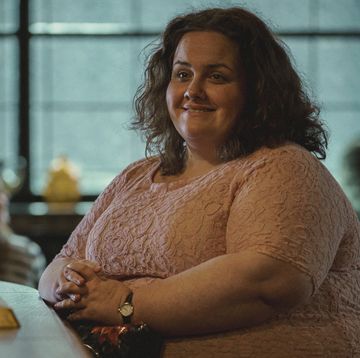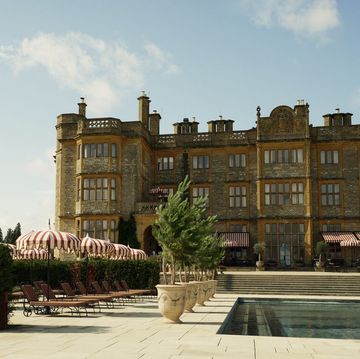On American TV last week, Amber Rose was told she gave off a ‘sexual energy’ that encouraged men to grope and harass her. She was advised to ‘dress the way you want to be addressed’.
It was just another reminder that society still upholds an uncomfortably vague idea of what constitutes rape. Lengths of skirts, level of drunkenness, past sexual histories are still held up against what should be a concrete, black and white concept of consent.
It’s part of the reason Louise O’Neill’s novel Asking For It is so important. This summer it will be released with a new adult cover, which we are exclusively revealing, and it’s a book that everyone needs to read.
The novel’s heroine is Emma. She’s 18, she drinks and takes drugs and she’s sexually active. She’s also competitive, insecure and an awful friend at times. When she is gang raped at a party with the evidence splashed all over Facebook, the small Irish town she lives in rallies round the promising football playing golden boys who raped her.
O’Neill says: ‘Too often we have an idea in our heads of what the ‘perfect’ victim of sexual violence will look like and I believe that this is actually very dangerous. It can create a situation where women who fail to conform to that model are deemed less worthy of sympathy and can discourage victims from reporting their attack. And most of us have these ingrained prejudices - how could we not when we’ve been fed a victim-blaming narrative for most of our lives?’
Importantly, O’Neill is trying to change the narrative. Although, as always when you speak out against sexism, there is a backlash. When women are fighting against the status quo they are often backed into a corner of constant explaining, defining and defending with any tiny gap in knowledge condemned as a flaw in the entirety of the feminist standpoint.
O’Neill didn’t set out to be an activist: ‘I told stories that dealt with social issues that I felt were important and it seemed to morph into something else. At the moment I don’t know if I’m a writer or a spokesperson anymore. But I’m determined to use my voice in whatever way that I can.’
She is currently waging a war on her Facebook page in the wake of the University College of Dublin scandal where there were claims of a private Facebook group where male students were sharing and rating naked photos of female students.
‘At the beginning I did feel a responsibility to engage and I spent a lot of time answering their comments and trying to reason with them but it soon became clear I was wasting my time,’ she adds. ‘Many of these people did not want to engage in nuanced debate, they simply wanted to spew vitriol at me.’
It’s why O’Neill’s book is vital, it forces you to look at the prejudices that you’re unaware of and to challenge them.
As Amber Rose said: ‘If I’m laying down with a man, butt-naked, and his condom is on, and I say, ‘You know what? No. I don’t want to do this. I changed my mind,’ that means no. That means fucking no. That’s it. It doesn’t matter how far I take it or what I have on. When I say no, it means no.’
To read ELLE's investigation in to the subject of consent and the women who are taking a stand, buy the April issue of ELLE, on sale now
Words by ELLE Literary Editor Anna James












